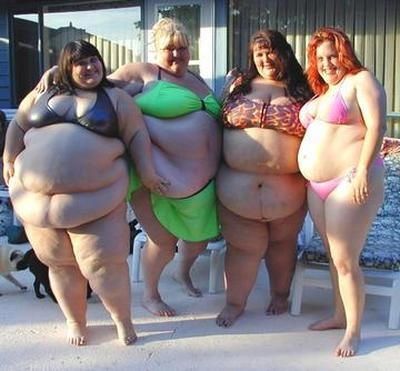FLEX SUPPLEMENTS
Best products, latest news from the world of body building

Fat Loss Diet & Training Tips
Have distinct goals- both short term (2-4 weeks) and long term (3 months-year). This helps keep your training and diet focused, and gives you something to aim for.
Write up a plan- writing a detailed plan of what you need to do to achieve your goals helps you identify precisely what you need to do, sacrifices you'll have to make, etc. Failing to plan is like planning to fail!
Keep motivated- keep inspirational pictures in places you see them regularly for motivation, dream of your ideal physique, take pictures so you can see improvements.
Measure progress regularly- if one or two weeks go by without any progress, something has to change. Try cutting back on carbohydrates and calories or increasing cardio.
Do 20-40 minutes cardio 3-4 days a week- preferably in the morning on an empty stomach.
Vary your cardio intensity(interval training)- Low intensity (25%) burns more % fat calories, but medium intensity (65%) burns more net fat calories, along with more glycogen, and muscle protein. Vary intensity to stave off boredom, shock your body, and develop more slow twitch, fat oxidizing muscle fibers.
Train with higher reps (or higher intensity cardio)- again, this stimulates Type 1, slow twitch muscle fiber which develop more mitochondria which in turn can oxidize (burn) more fat.
Use fat burning supplements, L-Carnitine- if your going to use any fat burning supplements, this combination has been shown to be very effective. Synephrine may be a new, emerging supplement that replaces ephedrine with less jitters. Buy separately or look for supplement that combines them.
Eat plenty of protein- this prevents muscle wasting which ultimately lowers your metabolism and ability to burn fat, and they are more difficult calories to assimilate.
Eat 6 meals a day- this prevents major insulin/blood sugar fluctuations, helps control hunger, increases metabolism, and prevents storage of excess calories as fat(because there is no excess).
If you can't count calories, at least count portions- a portion of meat might be a chicken breast, and a portion of carbs might be a cup of pasta. Always include a portion of protein.
Eliminate juice/pop calories- Substitute pop and juice with water or diet drinks with virtually no calories, milk is fine, but not between meals.
Prepare meals beforehand- so you always have healthy foods available. Spend a Sunday afternoon preparing chicken breasts and pasta, and chopping vegetables so you can have good food readily available all week long.
Understand the Glycemic Index(GI)- it is a measure of how much blood sugar is elevated in response to eating food. White bread & glucose have value of 100, and the lower the better. High blood sugar leads to high insulin levels which leads to fat storage (of excess calories) and less satiety (hunger pangs come again sooner).
Eat lots of fruit and veggies- fruit may contain fructose, but though it is simple in structure, it has the least effect on blood sugar out of all foods! Veggies are high in fiber which also lowers GI. Some exceptions: bananas, carrots, and most dried fruit.
Stick with whole grain foods- when selecting bread, make sure white flower is not the first ingredient! Eat oatmeal instead of flaky cereals, and get protein fortified or whole wheat pasta.
Don't boil your veggies- fiber lowers GI, but there are soluble fibers that are lost when boiled in water (and poured off), so steam your veggies, or eat them raw.
Start meals with salads/fruit/veggies- eating low GI/high fiber foods before a meal lowers overall GI, so eat your salad first, or start your meal with an apple.
If eating high GI foods, limit calories and fat- it's OK to have some cheat foods with high GI from time to time, but increased insulin surge will more readily store any excess fat or carbs as bodyfat.
Don't eliminate fat from diet- make sure to get enough fats, preferably from oils (olive, flax seed, hemp oil) on salads and/or meats, and avoid carbohydrates with this meal. Fat is released into blood for up to 5 hours, so your next meal should also be very low GI. Perhaps adding some oil to the last, low carb meal of the day would be the way to go.
Don't cook healthy oils- good fats are 'damaged' with heat, so consume oils on salads, or add to food after cooking (flax oil is highest in linoleic/linolenic acids, essential fatty acids).
Avoid junk food- I shouldn't have to even say this, but I will anyhow! Avoid chips, fries, chocolate bars, and doughnuts at all costs! (high GI from white flour/potatoes/sugar with lots of fat). If you absolutely must, have it as a meal by itself and hope the calories are low enough to avoid being stored as bodyfat.
Drink lots (~10 cups/day) of water- especially first thing in the morning. Good hydration is essential for optimal functioning of all biological processes, including fat oxidization and waste removal.
Avoid processed foods- processing removes most vitamins and fiber(raising GI), and tends to destroy essential fatty acids (hint: stay away from anything in a box unless it's whole grain).
Don't have late meals- try not to eat anything less than 2 hours before bed, if you do, something light, low fat, high protein, low, low carb.
Taper your meals through the day- make your biggest meals in the morning, and taper them off as the day goes on. Though by biggest meal, I don't mean huge, all meals should be roughly 300-600 calories, depending on your requirements.
Eat about 14-16 x lean bodyweight (in pounds) calories per day- this is a rough measure, adjust according to energy levels, activity levels, and progress.
Allow yourself one cheat day a week- if pursuing a strict diet, have one cheat day a week so it's easier to stick with your diet. It's also best to have any 'cheat' meals after working out when you can store most of the carbs as glycogen, not fat.
Try cycling caloric intake- staying on a calorie restricted diet for too long can make your body adjust by dropping metabolism. Having a day of no calorie deficit or surplus may hold off unfavorable metabolic changes. Anabolic Burst Cycling requires 2 weeks high/2 weeks low caloric intake.

Honlapkészítés ingyen:
Ez a weblapszerkesztő alkalmas
ingyen weboldal,
ingyen honlap készítés...
Mai: 31
Tegnapi: 54
Heti: 31
Havi: 85
Össz.: 218 630
Látogatottság növelés
FLEX SUPPLEMENTS - © 2008 - 2026 - flexsupplement.hupont.hu
